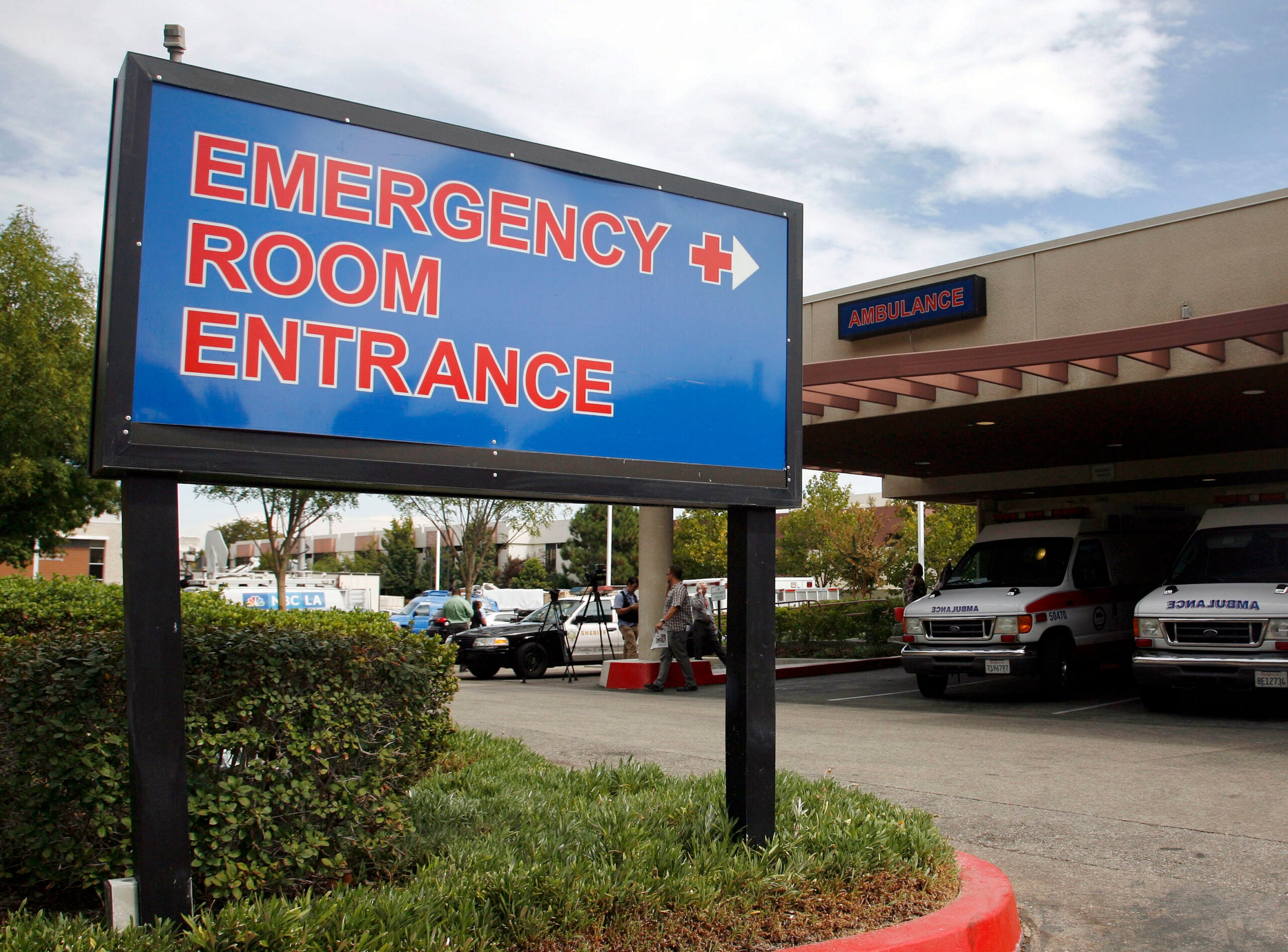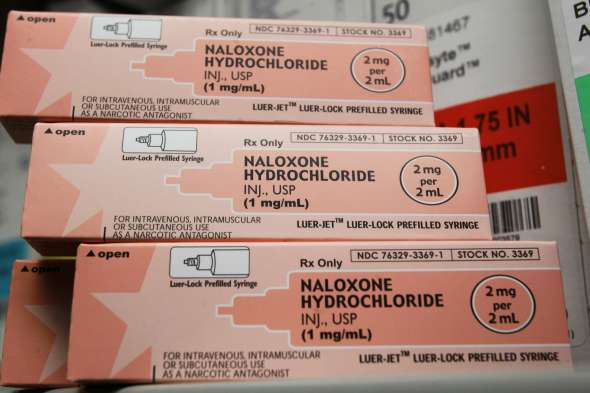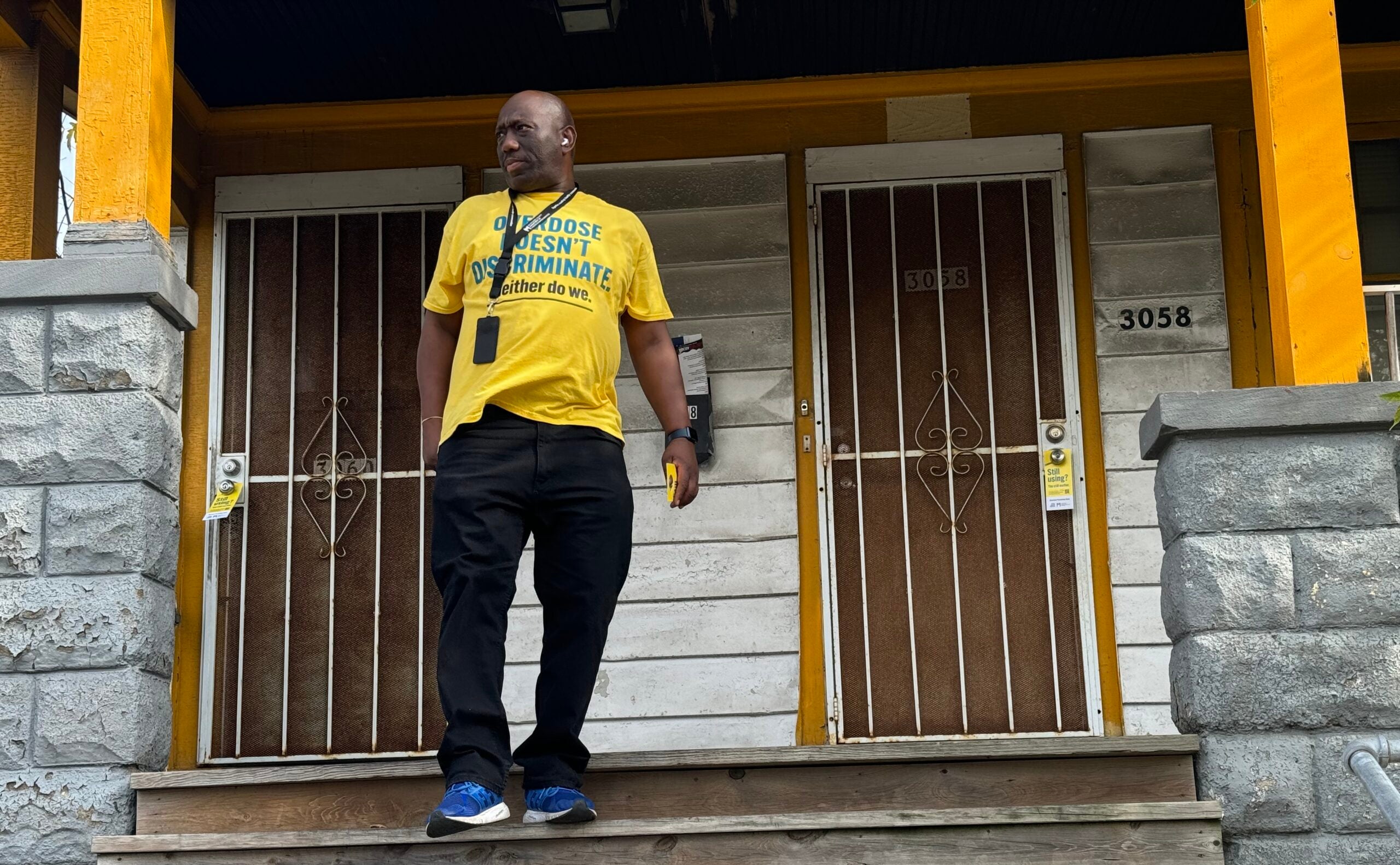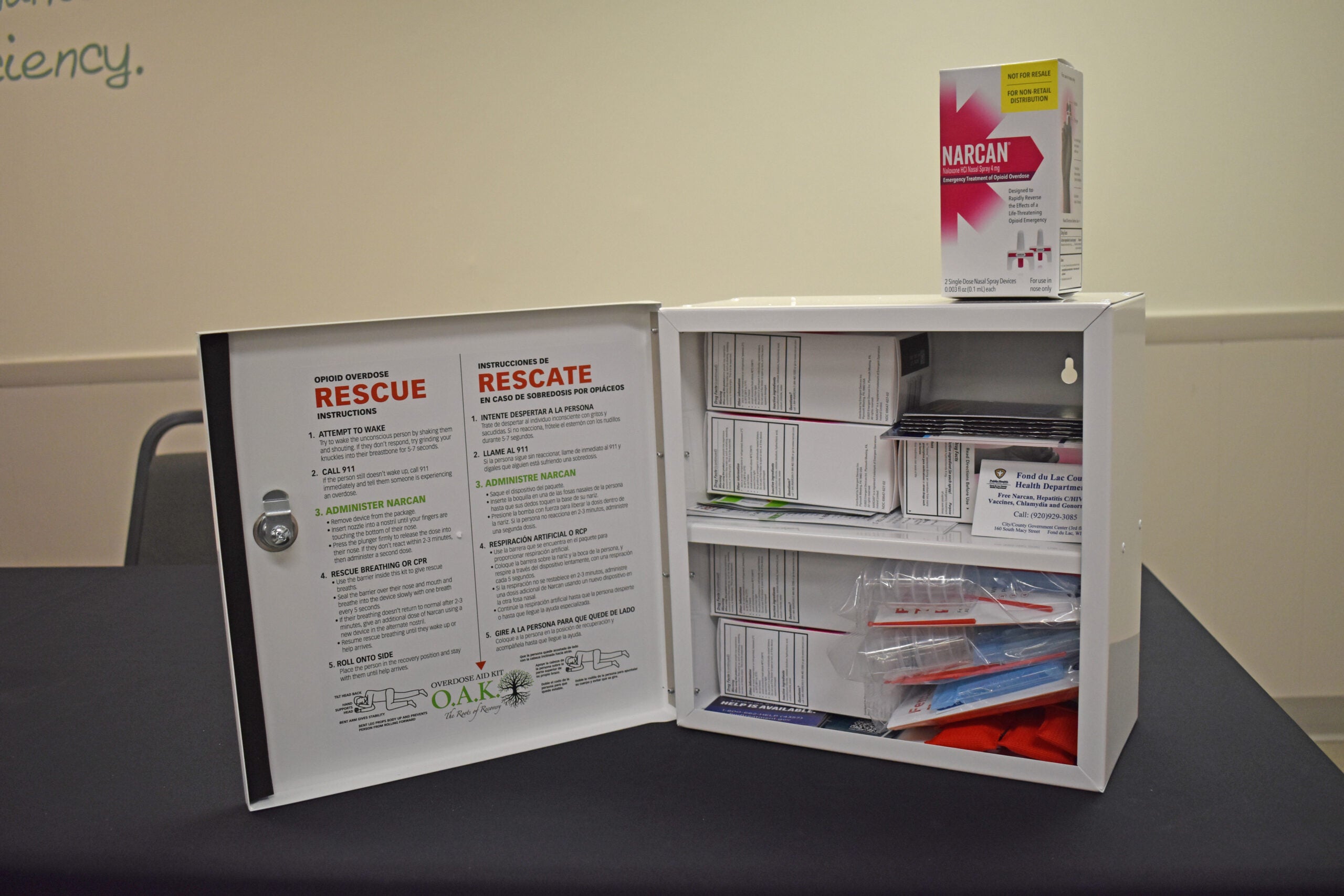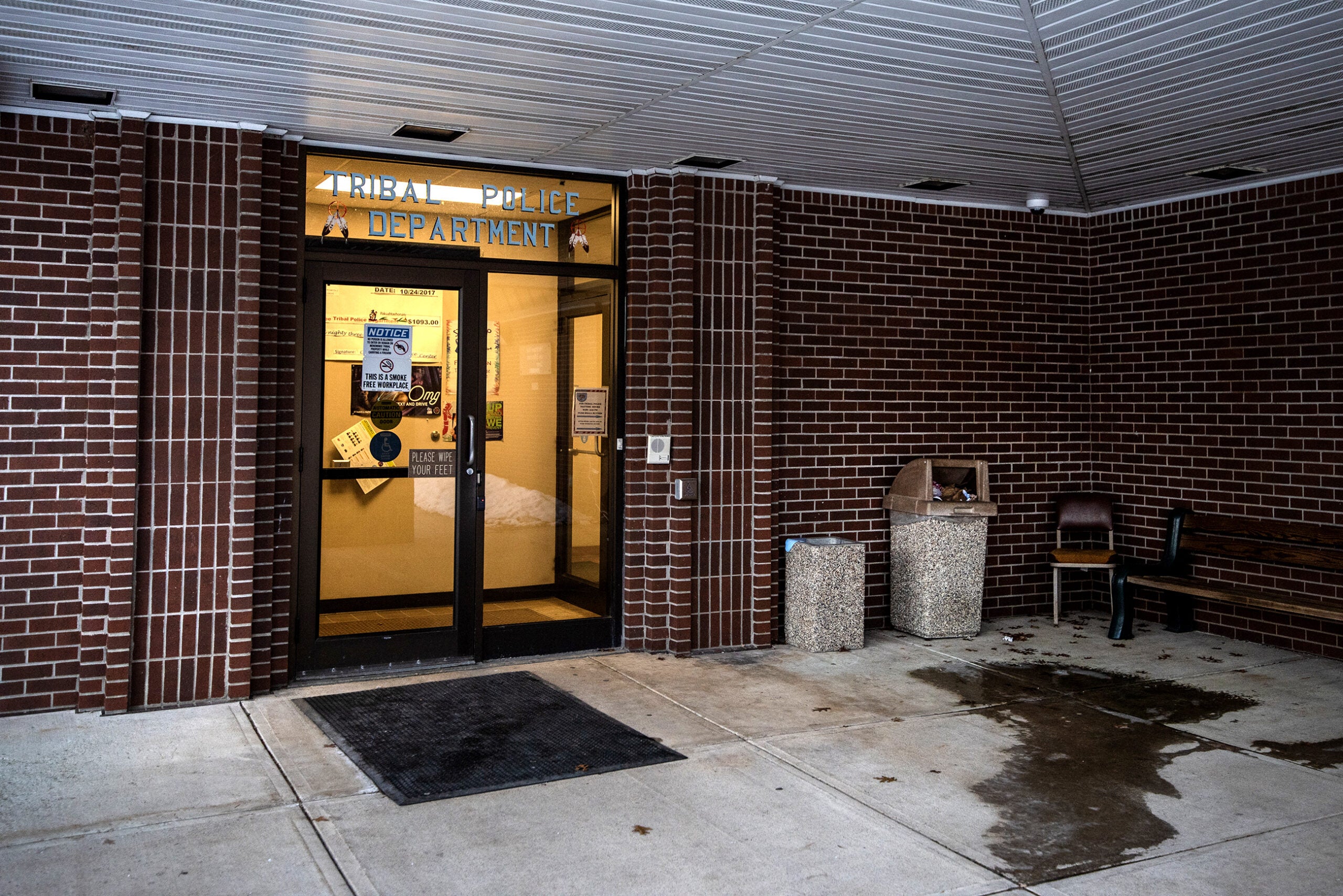A new pilot program meant to encourage opioid overdose patients to enter recovery will launch next month at Madison’s SSM Health St. Mary’s Hospital.
On weekends, state-certified recovery coaches will be on-call to provide stabilized overdose patients in the emergency room with counseling and recovery resources. The program will be run by Safe Communities, a Dane County nonprofit “that brings together public and private sector partners to save lives, prevent injuries and make our community a safer place,” according to its website.

Dane County Executive Joe Parisi, left, speaks at SSM Health St. Mary’s Hospital in Madison about a new pilot program that will provide opioid overdose patients with counseling and recovery resources. Shamane Mills/WPR
Stay informed on the latest news
Sign up for WPR’s email newsletter.
Dane County Executive Joe Parisi said it’s better to treat an addiction than to send people to jail or prison.
“We need to offer people the help they need when they need it,” Parisi said. “We need to demand accountability, but we need to do so with compassion.”
St. Mary’s had 180 overdose patients in the emergency room in 2015, according to emergency room physician Kyle Martin. That’s about one overdose every other day. The number of deaths caused by opioid overdoses in the state went up 39 percent from 2010 to 2014, he said. That’s higher than the national average of 20 percent.
Wisconsin has seen a 70 percent hike in fatal drug overdoses from 2005 to 2015.
Martin said he’s excited about this new program because it will provide his patients with care he can’t offer himself.
“As an emergency physician, you’re kind of running from room to room and patient to patient, and once you’ve got a patient stabilized and reversed, you don’t have time to really spend with the patient to try to help them to prevent the next event,” Martin said.
The coaches, who are all in recovery themselves, will be able relate to patients on a personal level.
The pilot is modeled after a program in Rhode Island called AnchorED. The program had an 86 percent success rate of getting people into treatment following their emergency room stay, Skye Tikkanen, drug poisoning prevention program manager for Safe Communities, said
Parisi said he hopes Madison’s program is a success, so it can be replicated throughout Dane County and beyond.
The pilot is funded by the Wisconsin Medical Society Foundation. Parisi said he hopes the county matches that group’s funding of $15,000.
The program is slated to begin Nov. 1.
Editor’s Note: This story has been updated to correctly reflect the program’s start date. A press release from Dane County incorrectly listed the date.
Wisconsin Public Radio, © Copyright 2025, Board of Regents of the University of Wisconsin System and Wisconsin Educational Communications Board.
